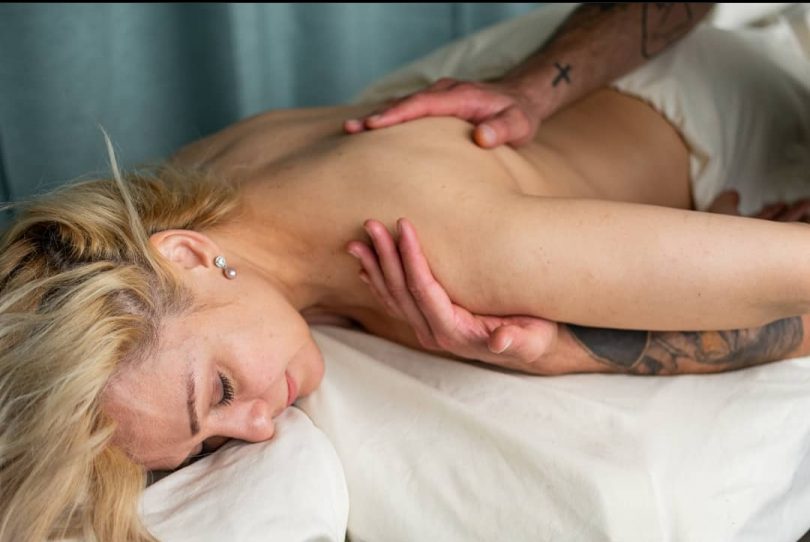Why do people use complementary therapies? How does massage therapy compare to traditional medicine in terms of addressing adverse effects on the body? How does the energy exchange between the massage therapist and client impact the final wellbeing of the client?
Massage treatments are part of the alternate therapies category generally named holistic and used instead, or as compliment to a traditional approach to medications. These treatments incorporate physical, emotional, and spiritual needs by looking at the person as a whole self-connected body like oriental medicine does, and perhaps do not need to be exclusively used in conjunction to complete a healing process.
People may have more than one reason for trying a complementary therapy. Some of the reasons include:
- Preventing injuries and illnesses
- Feeling dissatisfied with conventional medical practices
- Feeling unhappy with their doctor-patient relationships
- Wanting to take charge of their own health and medical problems
- Reading evidence of the benefits and safety of some complementary medicines and therapies
- Feeling dissatisfied with limited success rates or adverse side effects of prescription medicines
- Wanting to receive healthcare that treats the whole person and not just their symptoms (Note: both complementary healthcare practitioners and some conventional health professionals actively endorse holistic care).
Energy exchange and the power of touch
There are different types of treatments and most importantly not all require either a touch or a “positive energy” to take action, however, I like to approach every massage with empathy and a desire to know more about the person who puts their trust in me. This care can bring to the table a lot more than just a remedial session, as most people also suffer from general stress and do not perceive their loss of ground. Those individuals are unconcerned with what is really going on in their life believing that all traditional medicines could be a solution to everything, probably not knowing any alternative or complementary treatments.

An interesting fact is that we carry and project energy and how it is exchanged affects your health especially when it has a certain quality. If you pay attention, you can perceive that quality when you are in the presence of another person.
In massage treatments the therapist`s energy has a huge impact on the final wellbeing of the client, along with a good and professional session (obviously), positivity and mindset is also involved. Along with a positive attitude and energy comes the touch that has been used in medicine since the early days of care, able to improve digestion, boost the immune system, lower blood pressure, decrease the level of stress hormones such as cortisol (triggering the release of the same kind of opiates as painkilling drugs, and reducing pain in pregnant women). Nothing can substitute the human touch!
Choose the right therapist for you
Are you willing to try alternate or complementary treatments, but you don`t know where to go to look for them?
Well, there are many therapists out there some working in studios and others in a mobile capacity, but there is definitely a growing number!
Choosing the right therapist depends on your needs and the connection you will feel with that person, example: relaxation, reflexology, or Indian head massage are all different from the most popularly requested “deep tissue” massage. So feel your body and understand whether you are just stressed, or not centred or have an injury, or stiffness. Different issues can require different approaches so speaking to therapists, and finding out what they offer and their knowledge and qualifications along with their understanding and general energy are important so that they can affect the best treatment for you.
Here at the Health & Wellbeing Magazine we also run a Directory of therapists so if you’d like to find a therapist near you please visit dir.foyht.org
To learn more about a varied range of alternative therapies and practices please explore the magazine website which is full of articles from a broad range of therapists.



